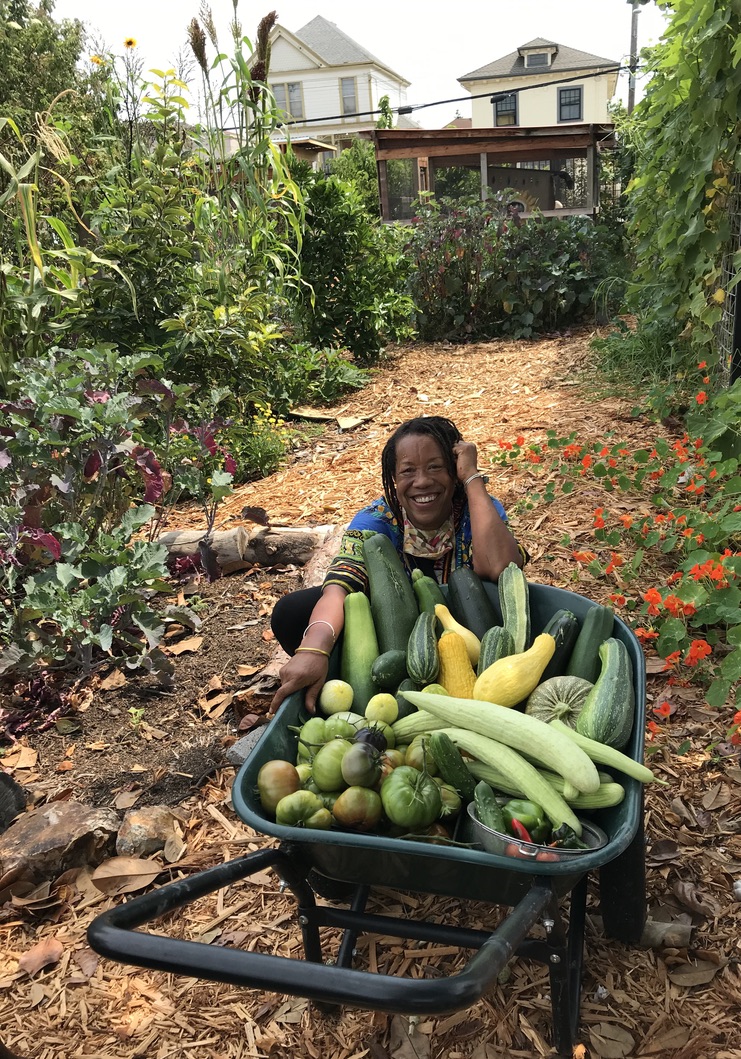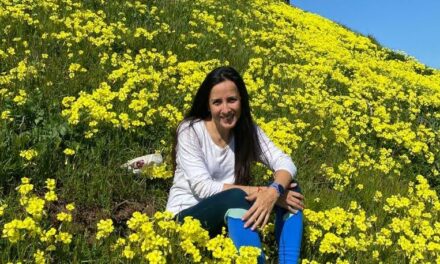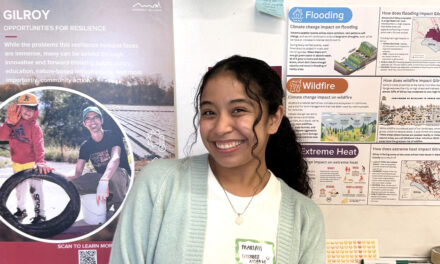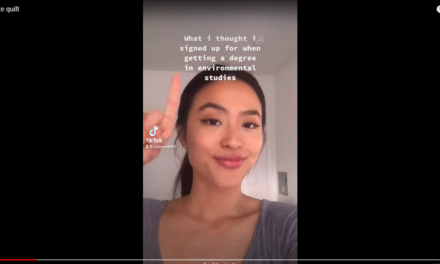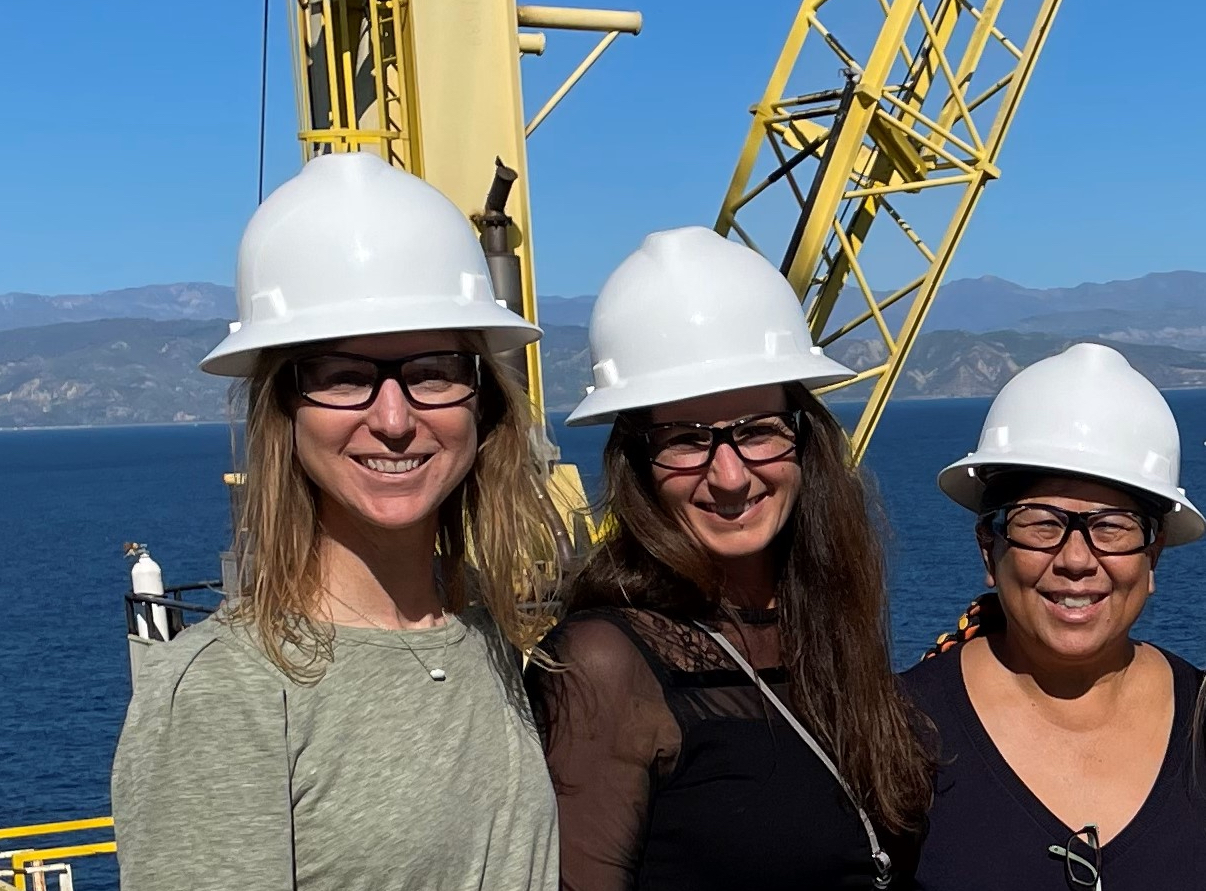Mama Wanda Sows Resilience
Wanda Stewart stood out in her bright yellow overalls at Hoover Elementary’s garden work day celebrating Black History Month last spring. Known affectionately by the community as Mama Wanda, she flitted through the garden like a bee, swarmed by people and activity.
After a career of school administration and community engagement, Stewart saw firsthand how schools can be a central space for activating people. But it wasn’t until she moved to Berkeley, started growing food on her own land, and fell under the mentorship of legendary East Bay gardener Victory Lee that she saw how her experience with schools and love of gardening could come together to generate transformational change.
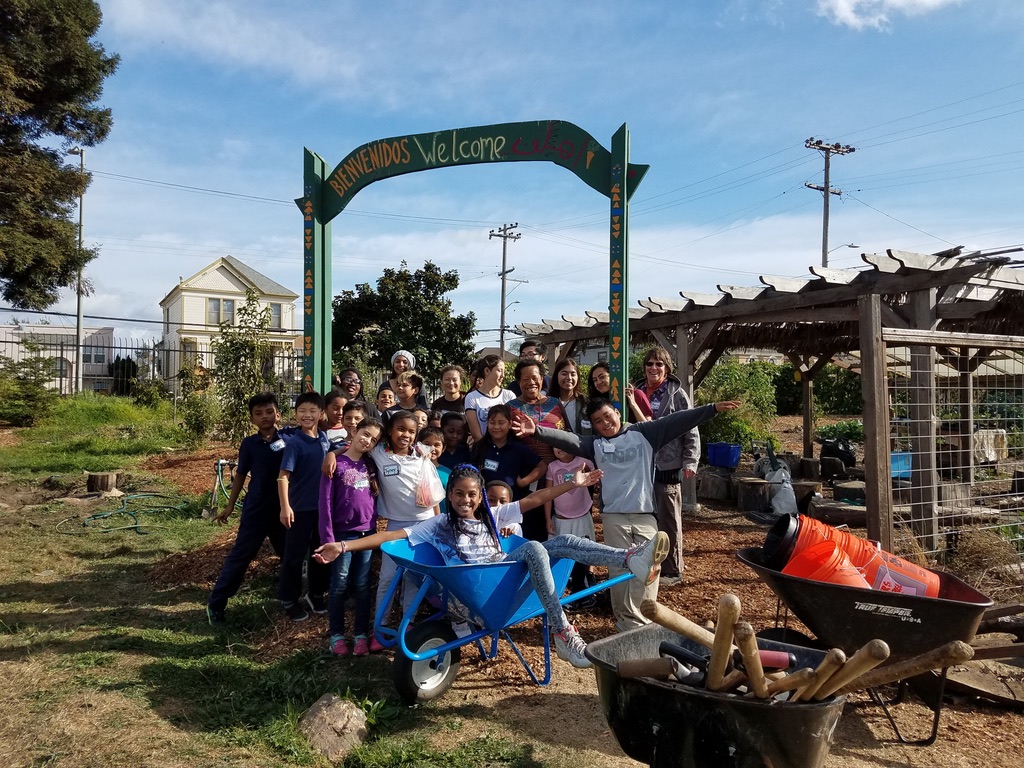
“By growing gardens in schools, we’re not just growing the children. We’re growing neighborhoods.”
Stewart went on to lead the food justice nonprofit People’s Grocery and build a garden at Hoover Elementary in West Oakland. All the while, she honed her philosophy: “By growing gardens in schools, we’re not just growing the children. We’re growing neighborhoods. We’re growing the earth and improving the planet.”
Stewart is now Executive Director of Common Vision, a fifteen-year-old nonprofit working at the nexus of food, learning, and the environment. Common Vision began with fruit tree planting in schools and now also educates youth, cultivates school gardens, and engages in urban forestry.
Stewart is quick to say that just like school gardens, trees offer multiple benefits. Trees clean the air, produce fruit, shed leaves that can generate compost, and even lower crime. Trees and gardens can also provide heat relief for community members and students. The greenery and shade can be crucial for schools with heat-absorbing blacktop playgrounds like Hoover Elementary, while also offering what Stewart calls “psychological cooling of the spirit.”
When Common Vision plants shade trees, youth conduct neighborhood outreach to inform residents of their benefits. This deep relationship building strengthens community support networks so communities can better respond to public health and climate crises.
Other Recent Posts
Testing Adaptation Limits: Mariposa Trails, Marin Roads & San Francisco Greenspace
In KneeDeep’s new column, The Practice, we daylight how designers, engineers and planners are helping communities adapt to a changing climate.
ReaderBoard
Once a month we share reader announcements: jobs, events, reports, and more.
Boxes of Mud Could Tell a Hopeful Sediment Story
Scientists are testing whether dredged sediment placed in nearby shallows can help our wetlands keep pace with rising seas. Tiny tracers may reveal the answer.
“I Invite Everyone To Be a Scientist”
Plant tissue culture can help endangered species adapt to climate change. Amateur plant biologist Jasmine Neal’s community lab could make this tech more accessible.
How To Explain Extreme Weather Without the Fear Factor
Fear-based messaging about extreme weather can backfire. Here are some simple metaphors to explain climate change.
Live Near a Tiny Library? Join Our Citizen Marketing Campaign
KneeDeep asks readers to place paper zines in tiny street libraries to help us reach new folks.
Join KneeDeep Times for Lightning Talks with 8 Local Reporters at SF Climate Week
Lightning Talks with 8 Reporters for SF Climate Week
Staying Wise About Fire – 5 Years Post-CZU
As insurance companies pull out and wildfire seasons intensify, Santa Cruz County residents navigate the complexities of staying fire-ready.
Artist Christa Grenawalt Paints with Rain
Snippet of insight from the artist about her work.
High-Concept Plans for a High-Risk Shoreline
OneShoreline’s effort to shield the Millbrae-Burlingame shoreline from flooding has to balance cost, habitat, and airport safety.
When Oakland public schools closed at the start of the pandemic, Stewart coordinated a big harvest of collard greens and the herbs mullein, mint, plantain, and oregano to distribute to the kids. Afterward, the power of gardens as sites of individual and community resilience hit her: “There’s this fear of ‘here comes the apocalypse,’ but what made me cry was how empowered I felt because I had just fed the children and sent them home with food that was medicine. We had established gardens that could sustain us when the pandemic showed up in ways we hadn’t anticipated. Those four herbs are the herbs that one needs for respiratory distress. Those children had the tools to help their families. They knew how to grow those collard greens.”
Moving forward, Common Vision plans to help high school youth plant 2,000 trees in West Oakland and 5,000 trees in San Leandro. Meanwhile, Stewart says, “I am doing my best work as a climate resilience leader by first growing my best self — the best Wanda I can be.”
Top Art: Alyson Wong. Photos courtesy Common Vision.







